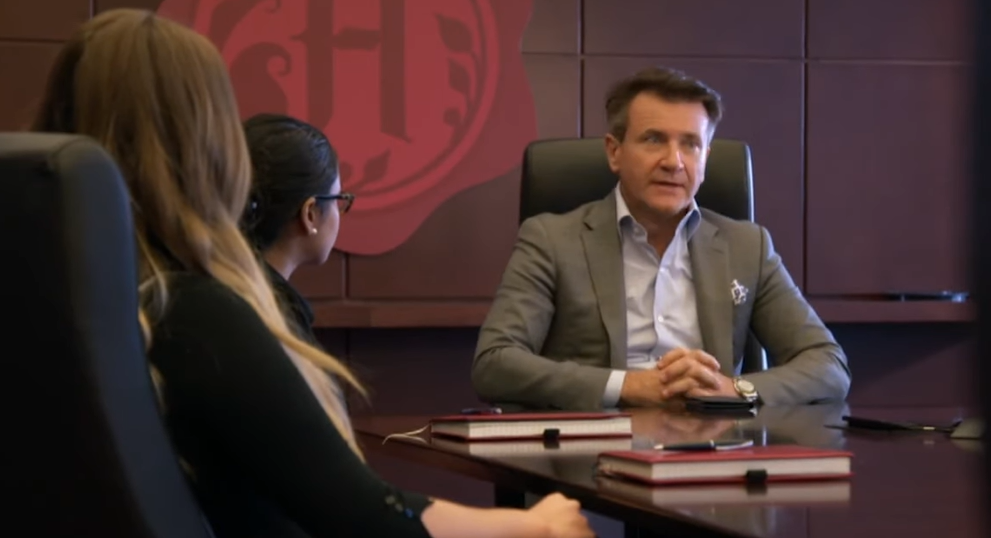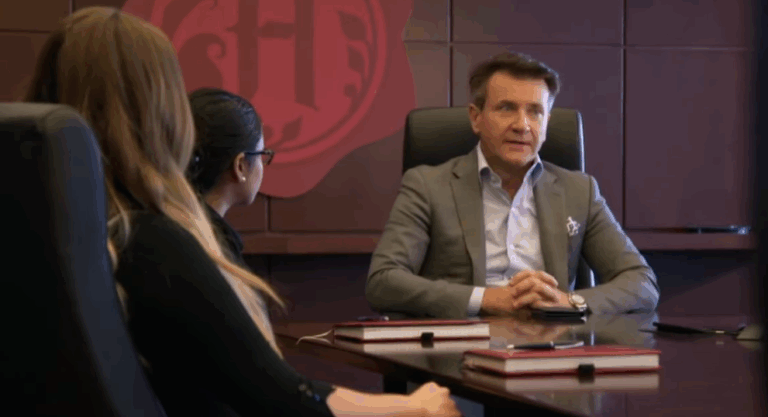With an estimated net worth of $600 million in 2025, Robert Herjavec’s wealth is more than just a financial achievement; it is a testament to his tenacity, foresight, and faith in long-term goals. Herjavec has gradually turned his life from humble beginnings into one of the most lucrative journeys in contemporary entrepreneurship over the past few decades. His ascent, especially in venture capital and cybersecurity, is remarkably similar to the stories of other immigrant-built empires, such as those of Elon Musk or Hamdi Ulukaya.
Herjavec was raised in Toronto after being born in Croatia, and his earliest recollections are tinged with hardship. With only a suitcase and $20, his family moved to a friend’s basement in Canada, where they tried to stabilize for more than a year. Robert’s perspective on adversity was profoundly influenced by his father, who was imprisoned multiple times for political dissent and became a symbol of tenacity. He frequently remembers how his father saved every penny by walking to work, a habit that eventually sowed the seeds of efficiency and ambition.
Before going into the tech sector in the 1980s, Herjavec worked in restaurants, delivered newspapers, and collected debt. He persuaded a company called Logiquest to allow him to work for free for six months in spite of his lack of credentials. That audacious action turned out to be especially advantageous. He rose to the position of general manager before using the knowledge he gained to start his own business, BRAK Systems, out of his basement.
Robert Herjavec Bio and Career Overview
| Category | Details |
|---|---|
| Full Name | Robert Herjavec |
| Date of Birth | September 14, 1962 |
| Birthplace | Varaždin, Croatia (former Yugoslavia) |
| Citizenship | Canadian |
| Education | B.A. in English Literature & Political Science, University of Toronto |
| Occupation | Entrepreneur, Investor, TV Personality |
| Known For | Founder of The Herjavec Group, Investor on Shark Tank |
| Major Companies Founded | BRAK Systems (sold to AT&T for $30.2M), The Herjavec Group |
| Notable Investments | Tipsy Elves, Aura Bora |
| Net Worth (2025) | Estimated $600 Million |
| Source Reference | Robert Herjavec – Wikipedia |

Through his comprehension of the increasing significance of digital security, he was able to sell BRAK Systems to AT&T Canada in 2000 for $30.2. His financial standing and reputation in tech circles were significantly enhanced by this deal. Rather than coasting, he jumped into another corporate position, becoming the VP of Sales at Ramp Network, which Nokia later purchased for $225 million. However, his subsequent action solidified his status as a business titan.
Herjavec started The Herjavec Group, an IT and cybersecurity company, in 2003 with just three workers and $400,000 in revenue. He turned it into Canada’s leading security provider by emphasizing managed services and enterprise solutions. Annual revenues have surpassed $200 million in recent years, and Apax Partners purchased the majority of the business in 2021. The company eventually merged with Fishtech Group to form Cyderes through strategic alliances and acquisitions, and Herjavec was appointed CEO.
Cyderes was expanded throughout the United States and Canada by Herjavec through the integration of highly effective operational frameworks. He did, however, resign as CEO in September 2024, citing his growing focus on his family and other endeavors. He continued to be actively involved on the board even after he resigned, putting himself in a position to shape the company’s innovation course while letting the new leadership continue the mission.
Herjavec became a global celebrity on Shark Tank. His friendly manner stood in stark contrast to co-stars like Kevin O’Leary’s acerbic tone and Mark Cuban’s more ostentatious manner. However, Robert’s methodical and composed approach to investing turned out to be incredibly dependable. One of the greatest success stories of the show was his $100,000 investment in Tipsy Elves, which reportedly brought in over $100 million in sales. His backing of the sparkling beverage startup Aura Bora further demonstrated his ability to identify up-and-coming companies before they become well-known.
Herjavec’s net worth has increased over the last ten years thanks to a well-balanced combination of real estate, dividends, book royalties, equity holdings, and public speaking. Each of his three best-selling books exhorts readers to pursue success in unconventional ways. Younger entrepreneurs especially enjoy his third book, You Don’t Have to Be a Shark, because they find his story to be surprisingly relatable.
His personal story is just as captivating to many fans as his professional one. Herjavec, who is married to Kym Johnson, his former Dancing with the Stars partner, combines a remarkable blend of business acumen and compassion. He is now more than just a boardroom star thanks to his media appearances, which frequently include unguarded family moments. He demonstrates that compassion and success don’t have to be mutually exclusive.
His story illustrates the growing allure of cybersecurity as a long-term source of wealth in the tech industry. Both founders and investors are paying closer attention to digital infrastructure as businesses around the world deal with data breaches and cloud vulnerabilities. Herjavec established a safety net of recurrent revenue streams that keep growing by getting a head start in this industry. From the 2008 crash to the digital acceleration of the pandemic, he was incredibly flexible in his business strategies and quickly adjusted to market disruptions.
Other Sharks have ventured into fashion, wine, or sports teams, but Herjavec has remained focused on his core competency: enterprise solutions. His portfolio is now much more stable but less ostentatious as a result of this consistency. Actually, only Mark Cuban has a net worth that is much higher than Herjavec’s among his Shark Tank peers; however, Cuban’s wealth is mostly due to the 1999 sale of Broadcast.com to Yahoo.
Robert Herjavec has shown a rare ability to link risk and foresight since his early days. His career path demonstrates that perseverance combined with an exceptionally good sense of timing not only generates wealth but also long-lasting influence. His impact is going to change along with cybersecurity risks. Even without the CEO’s name, his wisdom and equity


